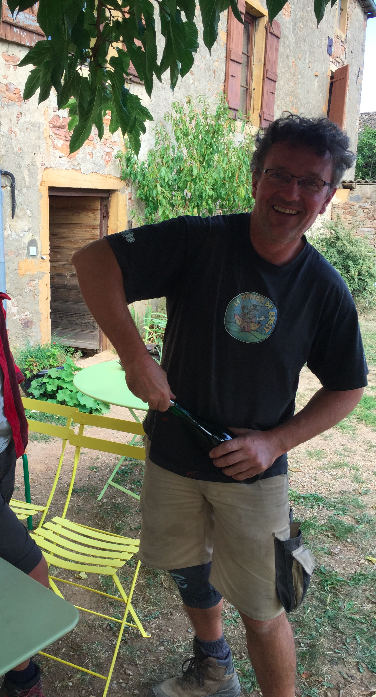When Philippe Jambon and his wife Catherine established their small domaine in the Northern Beaujolais village of Chasselas in 1997, the region’s wines were in a state of crisis. Overproduction of cheap, high-yielding gamay had driven the price of commodity fruit to an historic low and many vignerons in the area were struggling to survive. A native son of the Beaujolais, Philippe had an entirely different model of production in mind. With gentle farming and meticulous cellarwork, he reasoned, the unique terroirs of the Northern Beaujolais could produce singular wines of exceptional beauty and longevity. A decade later, Philippe is known throughout France as a truly visionary winemaker.
Over the course of 15 years, the couple has purchased a handful of micro-parcels in and around Leynes, a steep terrain that separates southern Burgundy’s limestone rich soils from the granite of the Northern Beaujolais. Nearly all parcels enjoy southern exposition, which spares Philippe problems with proper ripening. Vines are farmed organically – or, as Philippe puts it, “logically, without chemicals” – not so much as an ideological commitment to natural farming, but rather in acknowledgment of the importance of biological diversity for the quality of the wines. For this same reason, ploughing is conducted only occasionally, between rows, and without a tractor inside the vineyard.
Philippe’s cellar work is notoriously experimental and subject to change between vintages. Diverse cuvées come and go, orthodoxies are trampled upon – recently, for instance, Philippe blended a botrytized 2004 chardonnay, 8 years in barrel, with a 2011 gamay! “The wines defy simple classification,” remarked one Burgundy vigneron. “You might even taste the future chez Philippe.” Despite experimentation, there are at least two constant maxims: no additives of any kind are used and the wines are not bottled until they are absolutely ready. In reality, these two are one and the same, for Philippe believes that long élevage in barrel helps mitigate the so-called “faults” associated with zero-SO2 winemaking. As a general rule, macerations are long and wines may spend anywhere between 18 months and 5 years in barrel. Ironically, Philippe once excelled as a student of oeonolgy, training under some of France’s most esteemed educators, where he mastered the rules of conventional winemaking. Asked about his time at the Ecole, he jokes that he learned about “everything that must not be done.”

